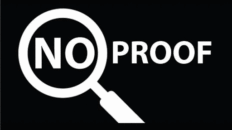By Hiran de Silva
In the era of social media, recognition is the new currency.
We’ve all seen the posts. A clever Excel trick. A punchy video. A 60-second tutorial that gets a thousand likes before lunchtime. And when someone reposts that content without credit, there’s a cry of injustice. “They stole my idea!” And rightly so. Recognition matters—especially in a space where influence, not expertise, often dictates authority.
But let’s turn this over and examine the other side of that shiny coin.
Because in my experience, the desire for recognition is not always accompanied by the willingness to be held to account.
Wanting Credit Without Responsibility?
Here’s the paradox.
Many creators want their content linked to their name when it’s celebrated—but not when it’s scrutinized.
When content is reposted without attribution, there’s indignation. But when content is reviewed, fact-checked, or challenged—suddenly the tone changes. The same people who wanted to be identified as the author now bristle at being mentioned. They call it “personal.” They call it “targeted.” They might even call it “toxic.”
But isn’t that exactly what attribution is? Owning what you’ve said?
If you claim the credit, you must also carry the burden of accuracy.
The Cost of Influence Without Accountability
Social media thrives on performance. Speed, novelty, and entertainment get more engagement than rigour, nuance, or context. It’s no surprise that much of the content being circulated is only surface-deep. It’s designed to dazzle, not to withstand inspection.
But when a post goes viral—when it is held up as best practice or shared as a reference—it moves beyond the realm of entertainment. It becomes influence. It shapes what people believe to be true. And that means it becomes fair game for critique.
To be clear, this is not about being unkind. It’s about standards.
If You Don’t Want to Be Quoted, Don’t Publish
Publishing is a public act. Whether it’s a LinkedIn post, a tweet, or a video tutorial, putting your content out there means stepping into a public conversation. You can’t choose to be visible only when the crowd applauds. Visibility includes being seen when questions are asked.
This is especially important in professional domains—like finance, data, or engineering—where poor guidance leads to real consequences. Wrong ideas repeated often enough can distort hiring practices, derail projects, and reinforce widespread mediocrity.
If your content influences others, then it’s part of a broader discourse. And in discourse, feedback—positive or critical—is part of the deal.
Recognition Means Responsibility
If someone reposts your content without credit, they’re wrong.
But if someone critiques your content—especially with substance and respect—they’re not stealing from you. They’re contributing to the same conversation you started. That’s what professional dialogue looks like.
The real problem is when creators want all the visibility but none of the scrutiny. When they demand credit, but evade critique. When they claim authority, but reject accountability.
That is not thought leadership. That is performance.
Final Thought
If your goal is only recognition, you may not want your name attached to flawed ideas.
But if your goal is genuine contribution—then even when your flaws are pointed out, your name belongs right there. Because growth, credibility, and leadership aren’t about always being right.
They’re about standing behind what you put into the world—even when it’s challenged.






Add comment